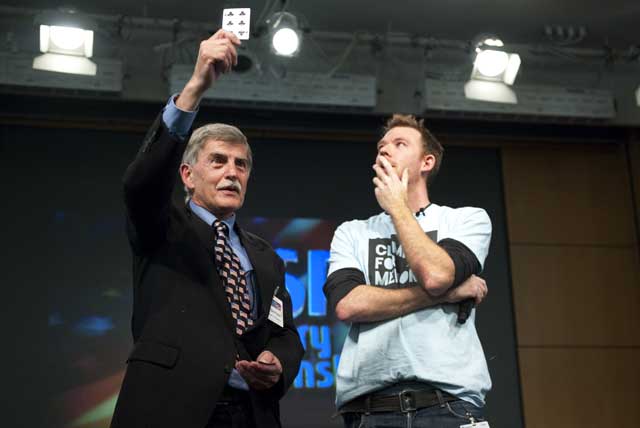Moonwalking with Einstein: The Art and Science of Remembering Everything, By Joshua Foer

Your support helps us to tell the story
From reproductive rights to climate change to Big Tech, The Independent is on the ground when the story is developing. Whether it's investigating the financials of Elon Musk's pro-Trump PAC or producing our latest documentary, 'The A Word', which shines a light on the American women fighting for reproductive rights, we know how important it is to parse out the facts from the messaging.
At such a critical moment in US history, we need reporters on the ground. Your donation allows us to keep sending journalists to speak to both sides of the story.
The Independent is trusted by Americans across the entire political spectrum. And unlike many other quality news outlets, we choose not to lock Americans out of our reporting and analysis with paywalls. We believe quality journalism should be available to everyone, paid for by those who can afford it.
Your support makes all the difference.Abook that promises to discuss how we remember everything is a curious thing. After all, we live in a culture of forgetfulness, surely one of the fringe benefits of modernity. Since Gutenberg and the invention of print, we have steadily found the ancient "art of memory" less and less important.
Indeed, we're at a point when we hardly need remember a thing – mobile phones keep track of people for us, PCs save our information, and satnavs tell us where to go. "People used to labor to furnish their minds," Joshua Foer declares, "but today...the vast majority of us don't trust our memories. We find shortcuts to avoid relying on them. We complain about them endlessly, and see even their smallest lapses as evidence that they're starting to fail us entirely. How did memory, once so essential, end up so marginal?"
Moonwalking with Einstein recounts Foer's personal journey in seeking to answer such questions. A science journalist, he explores "the quirky subculture" still devoted to the art of memory, in which eccentric individuals of all kinds practice memory techniques for hours each day in order to be able to memorise a deck of cards in five minutes, say, or 50,000 digits of pi. Seeking to test the claim that almost anyone can remember everything, Foer documents his year training for the US Memory Championship, under the tutelage of a young, whimsical English grandmaster of memory, Ed.
Foer's book is great fun and hugely readable, not least because the author is a likeable sort of Everyman-science nerd whom we want to become a memory champion. If he can do it, so can we! Foer – or Josh, the reader's friend – invites us to play along as he demonstrates the foundation techniques. He explains that our minds have an exceptional capacity for spatial information, so the best way to remember things is to translate them into spatial images. This you do by creating a "memory palace" in your mind.
His pal Ed gives him (and Josh gives us) a list of things to remember (pickled garlic, cottage cheese, smoked salmon, wine bottles, socks, etc.) and we are asked to remember it. It's a random list, but by placing these items in a memory palace created in our minds – that is, putting each item in a different room in a house or building we know well – we will remember. And the wonderful thing is, the memory palace works. Josh remembered the list and so, too, did I! In fact, several days after playing this game with Josh, I still remember that list of meaningless things and, who knows, I may remember them forever.
In between the narrative arc of Josh's own training, we meet all sorts of fascinating characters whose own exceptional or failed memories help us to understand just how complex memory really is. We meet the early 20th-century synaesthesiac "S", who remembers everything and forgets nothing. And then there's the poignant story of "the most forgetful man in the world," "EP", who remembers nothing and forgets everything, over and over again. EP's amnesia is so extreme that he "doesn't even remember he has a memory problem. That is something he discovers anew every moment." Always fascinating and frequently mind-boggling, Moonwalking with Einstein is a book worth remembering.
Join our commenting forum
Join thought-provoking conversations, follow other Independent readers and see their replies
Comments